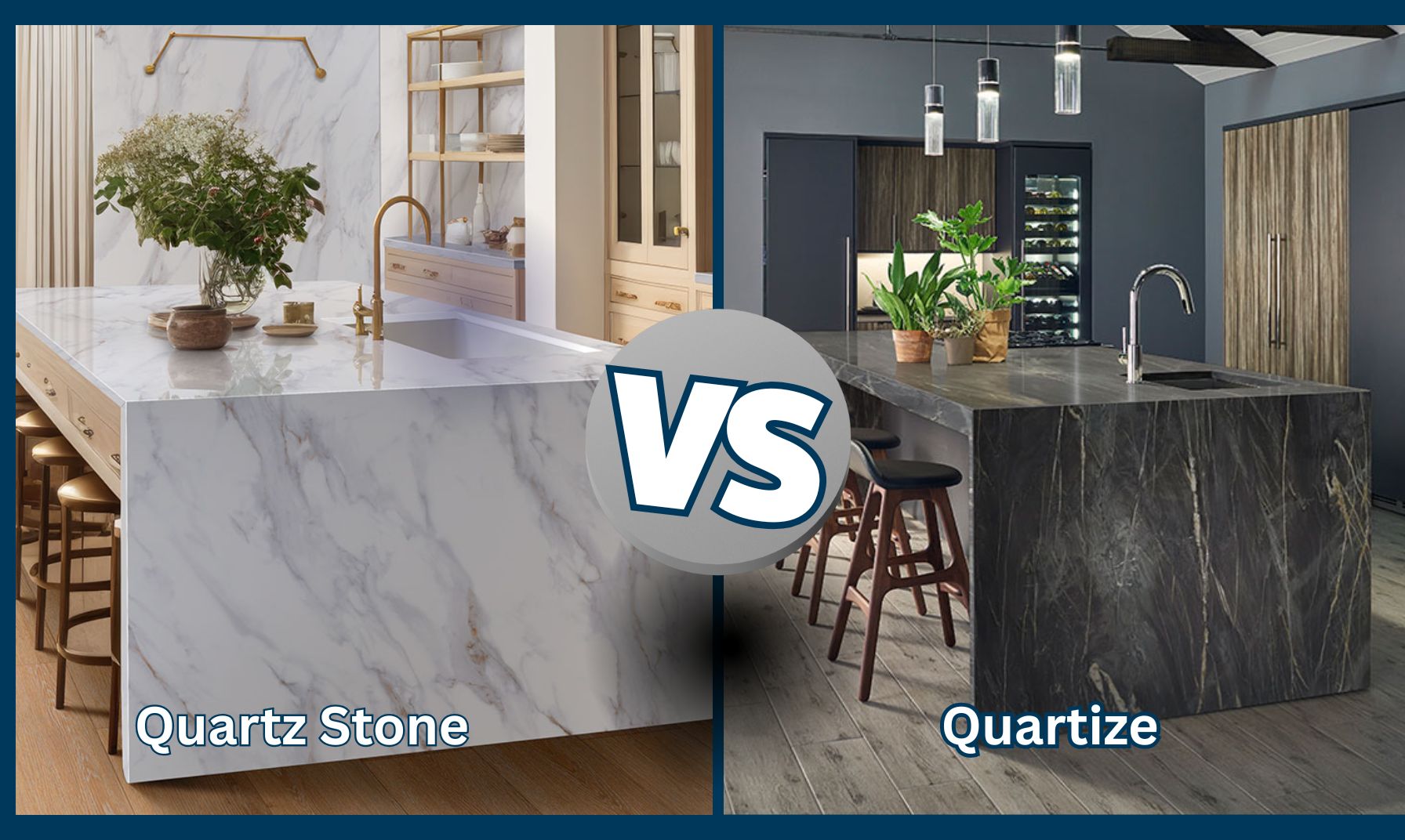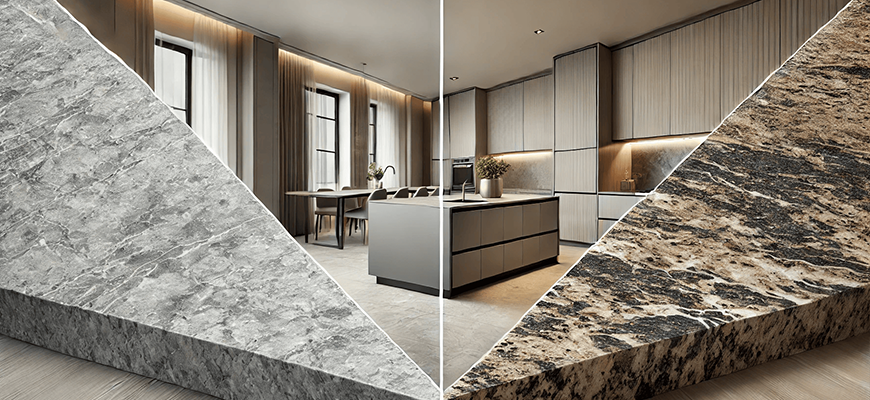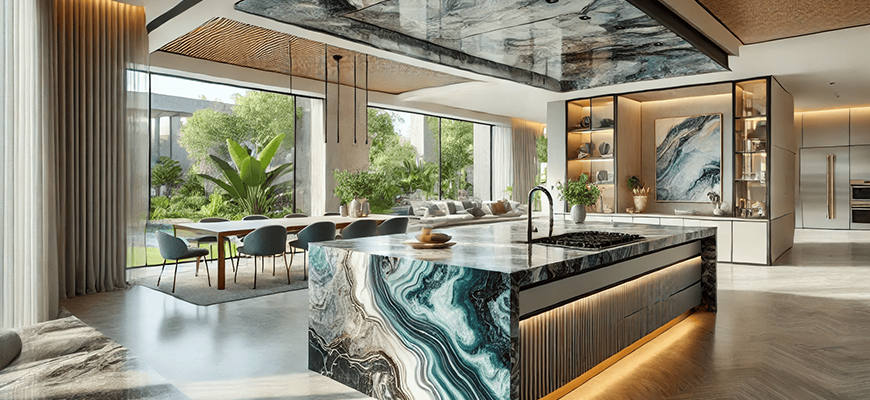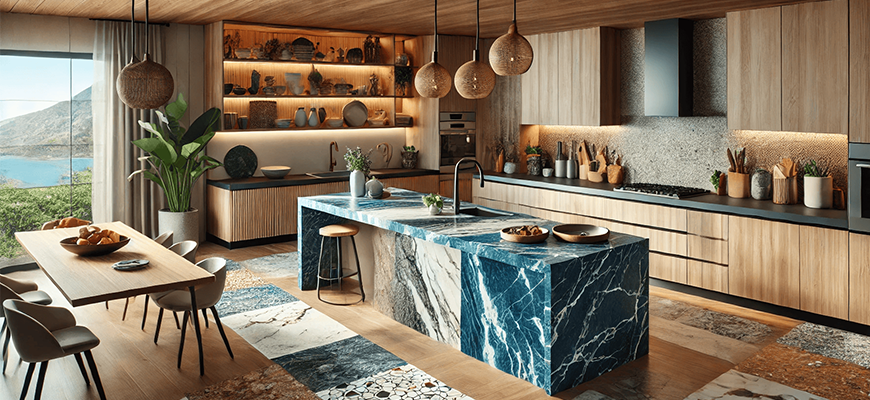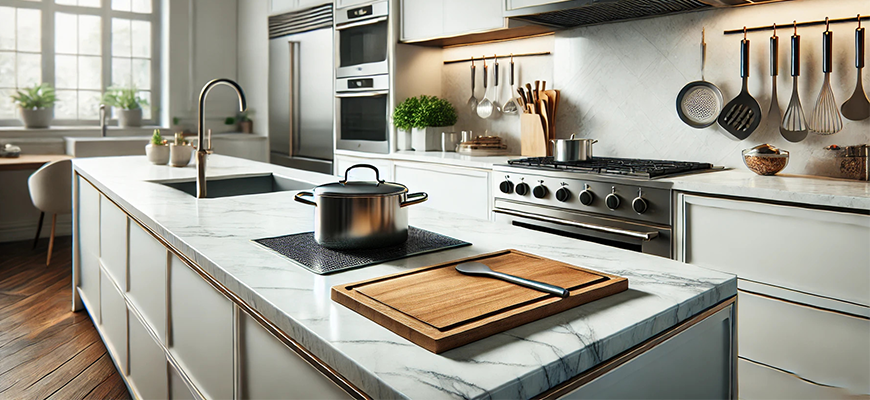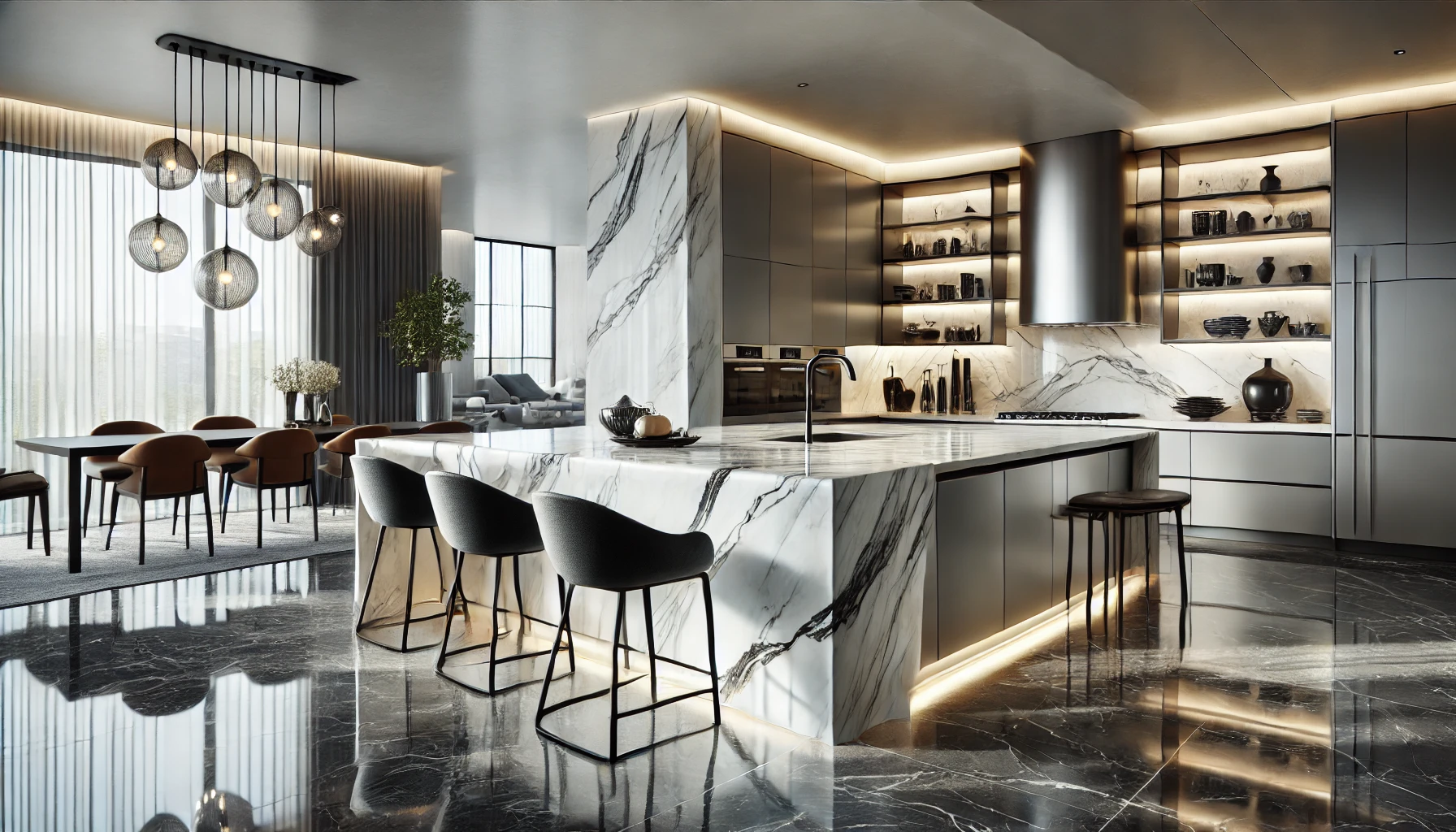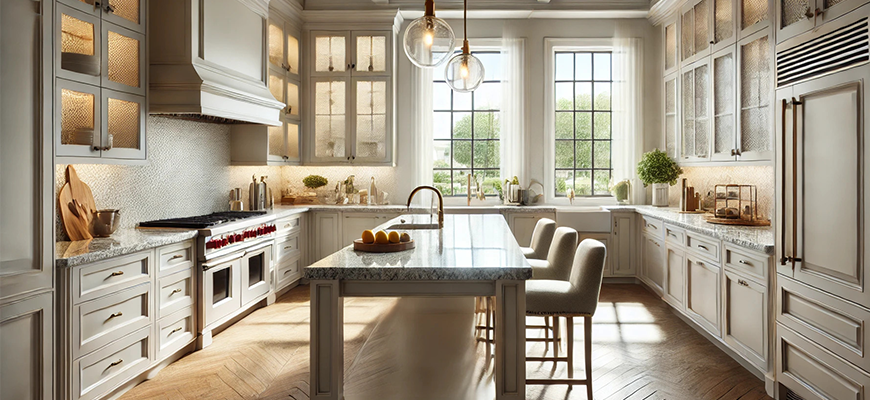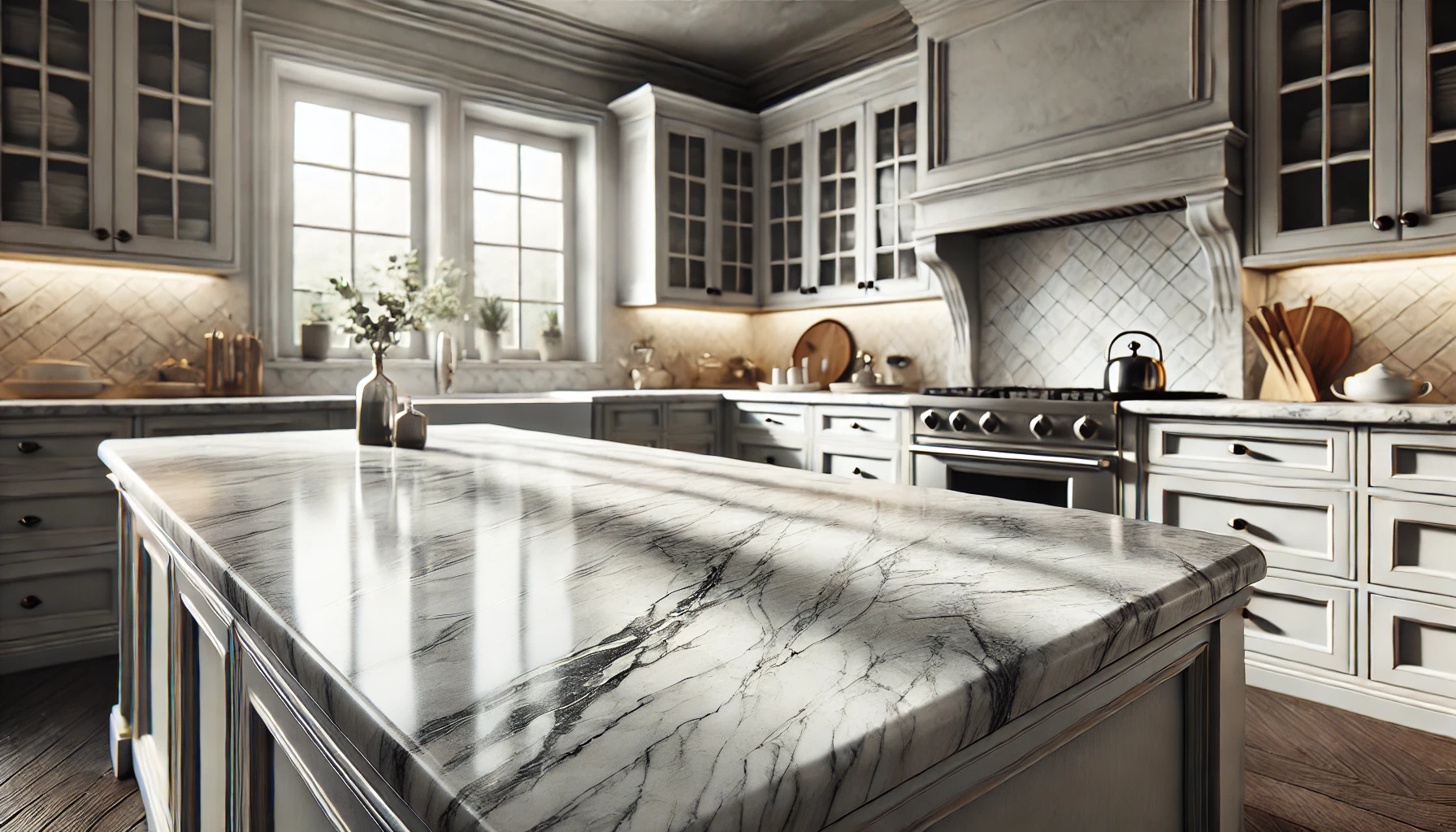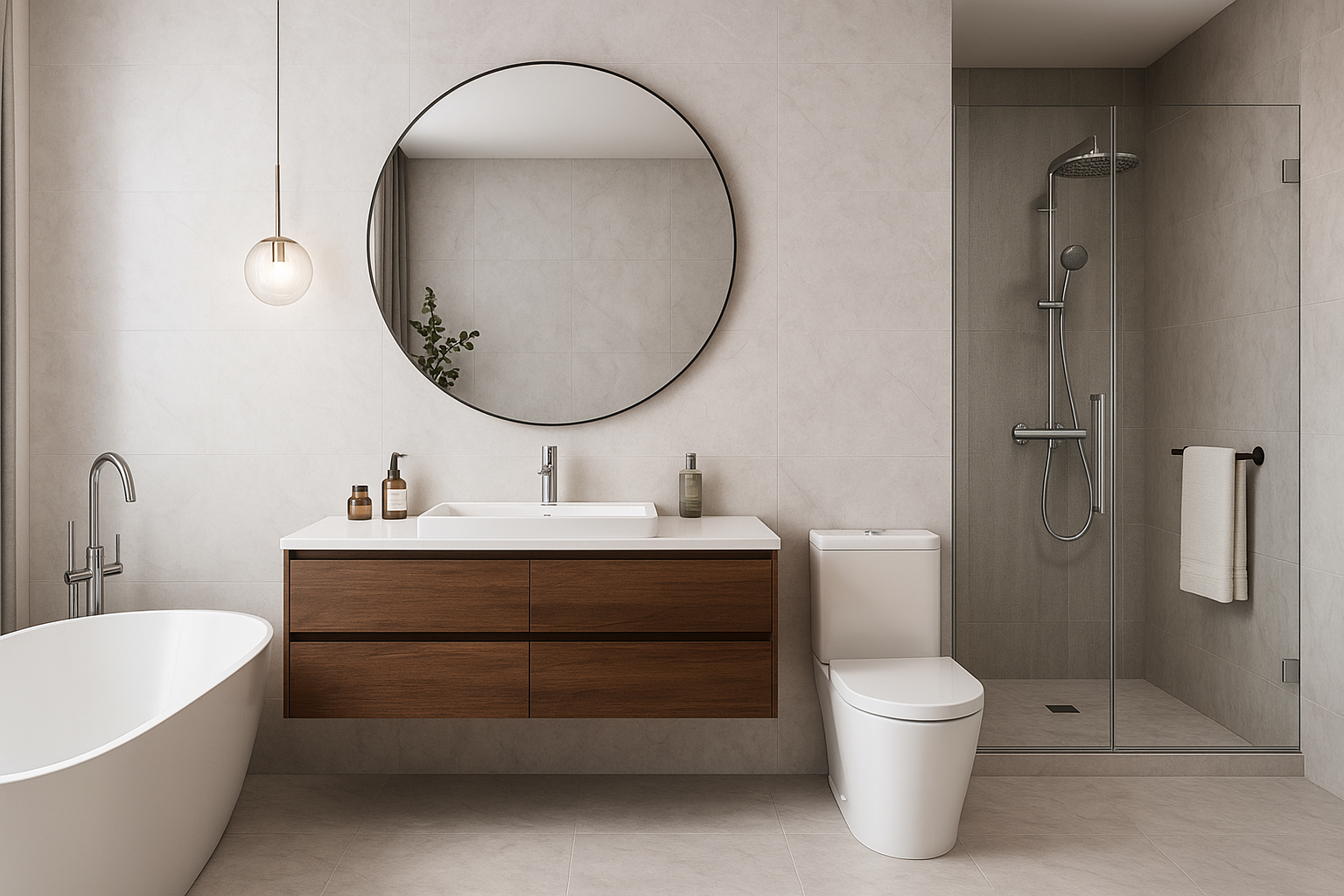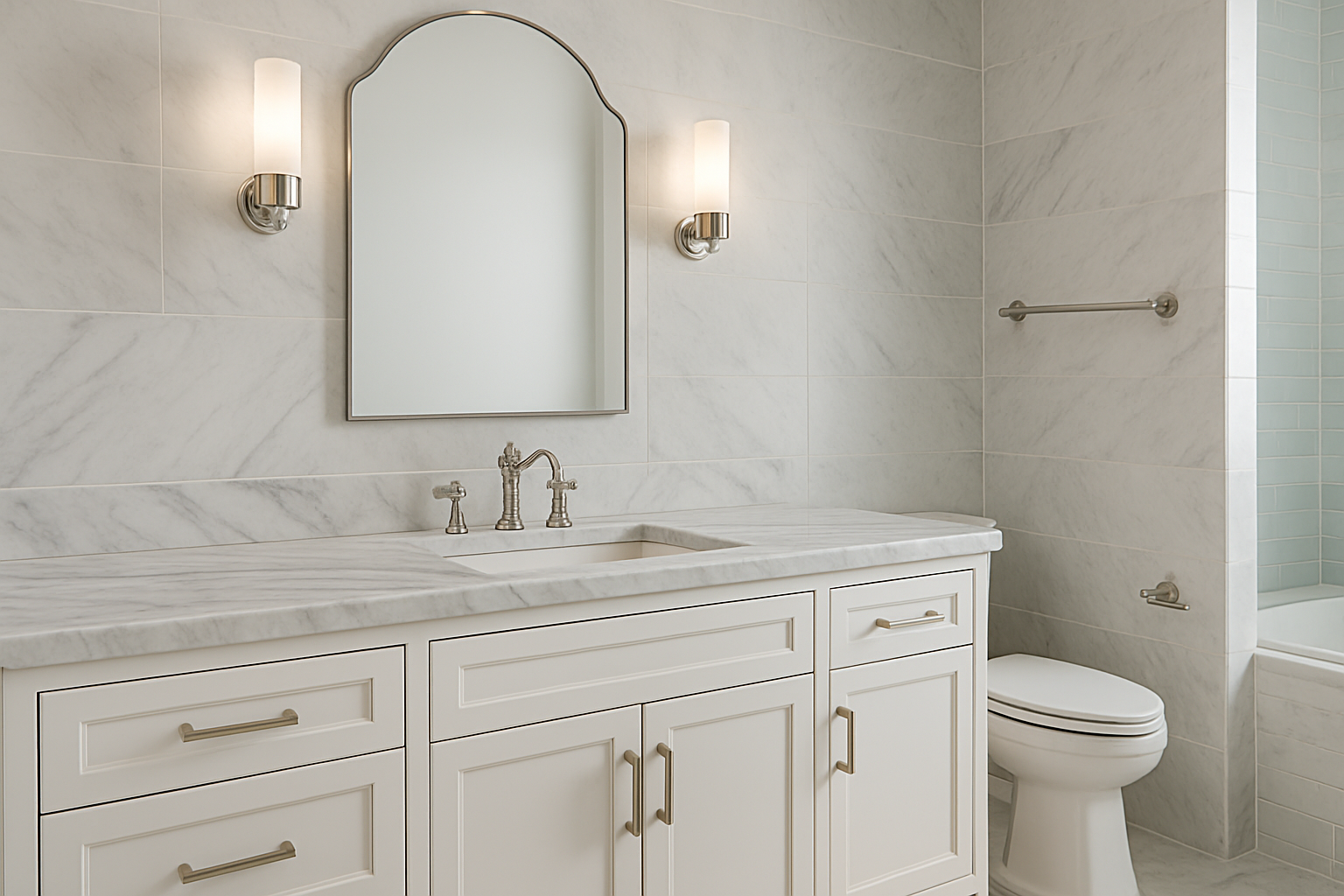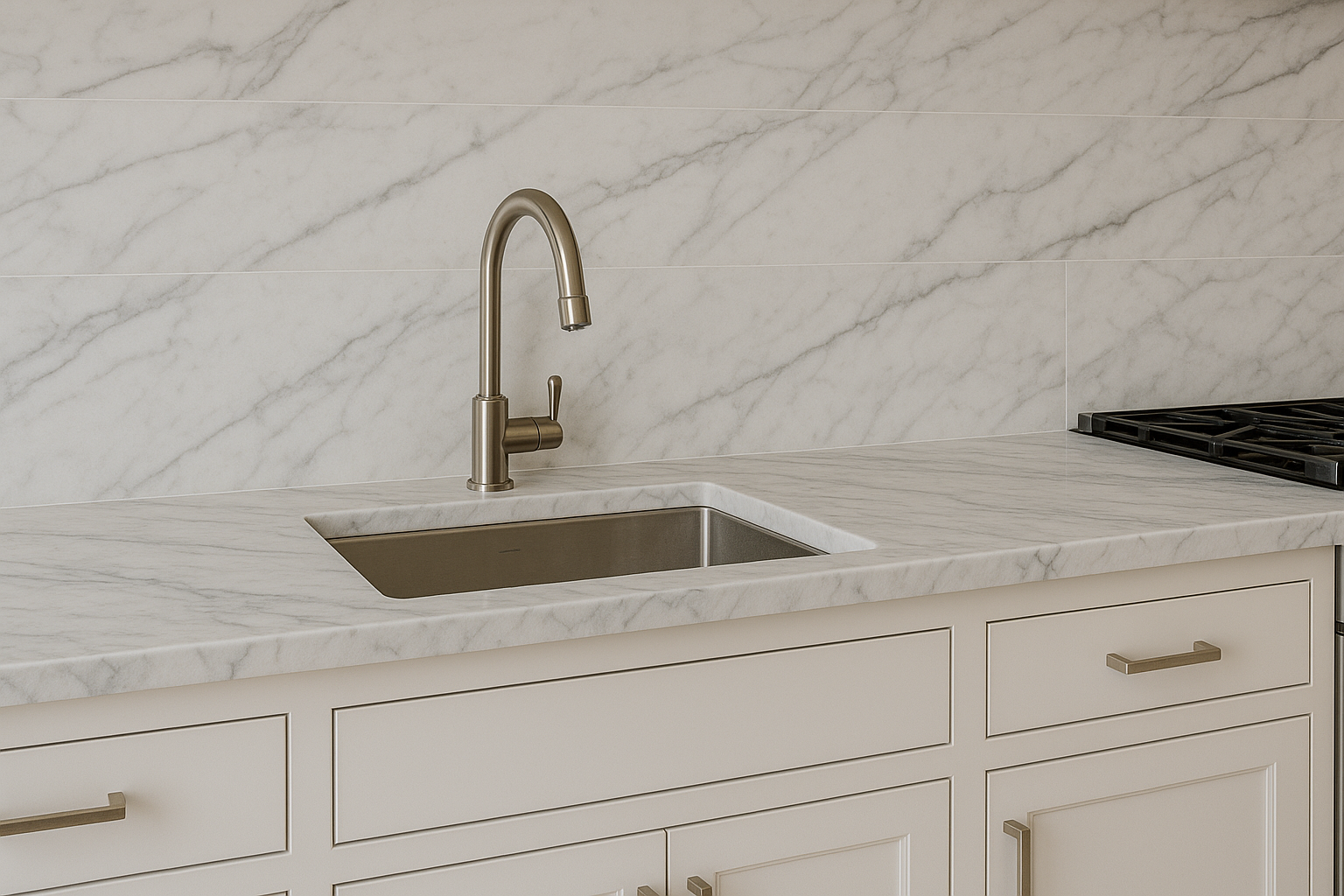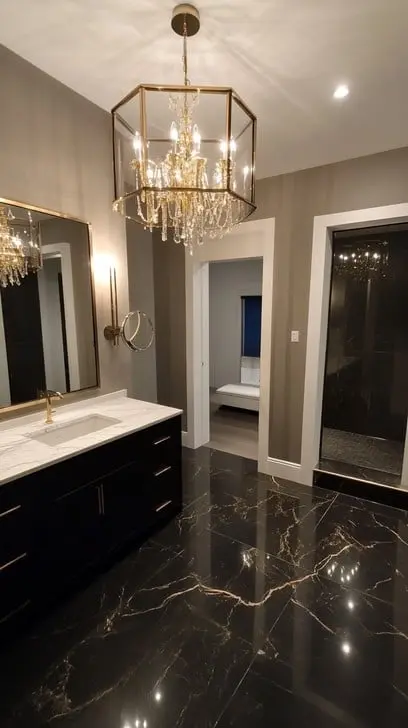When it comes to kitchen or workspace remodeling, you will find two of the most common materials: Quartz and quartzite. Both offer a great range of benefits, but their distinct pros and cons. With so many similarities at first, it is possible to get confused between quartz countertops. So here is what you need to know about Quartz vs Quartzite, and what you should do for your countertop.
Quartz vs Quartzite: Comprehensive Comparison
Before deciding on any of them, let’s learn the difference between quartz and quartzite in structure, performance, and maintenance.
| Feature | Quartz | Quartzite |
| Origin | Engineered stone made from 90–95% crushed quartz mixed with resins and pigments | Natural metamorphic rock formed from sandstone under heat and pressure |
| Appearance | Uniform patterns and wide color options | Unique, natural veining and organic variation |
| Durability | Very hard; resins increase impact resistance | Extremely hard; stronger than granite |
| Porosity | Non-porous | Naturally porous; needs sealing |
| Heat Resistance | Moderate; resins can discolor under extreme heat | Excellent; resists heat and scratches |
| Maintenance | Easy; just wipe with mild soap | Requires sealing once or twice a year |
| Cost Range (2025) | $65–$120 per sq. ft. installed | $80–$150 per sq. ft. installed |
| Best For | Modern kitchens, bathrooms, and commercial spaces | Luxury kitchens, natural design projects |
Both materials perform exceptionally well, but their origin dictates their behavior. Quartz, being engineered, delivers predictability and practicality. Quartzite is a natural stone that offers authentic beauty and raw strength.
What Is Quartz?
Quarts is an engineered stone surface that is crafted with crushed natural quartz crystals, bound with resins and pigments. The resulting surface is a non-porous, dense slab that mimics natural stone without the flaws. Modern quartz countertop production has advanced with eco-friendly binders and digital patterning. You can even get them with marble-like veinings, which will offer both beauty and performance.
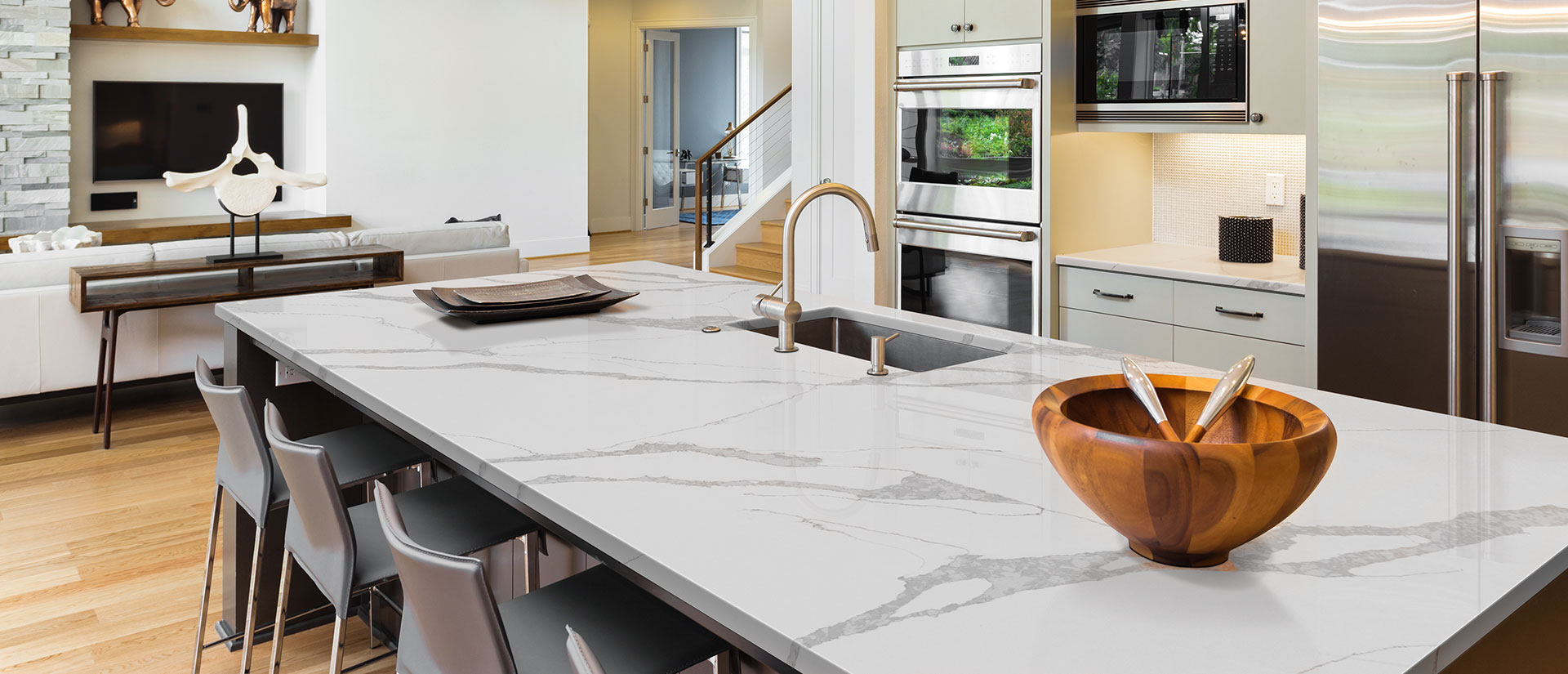
At Royal Marble and Granite NJ, a quartz countertop remains one of the most requested countertop materials because it’s consistent, durable, and versatile.
Pros Of Quartz
Here is why Quartz is a great choice:
| Feature | Benefits |
| Low Maintenance | Requires no sealing or special cleaning. Daily upkeep involves a simple wipe with a damp cloth, ideal for families and commercial use. |
| Non-Porous Surface | Does not absorb liquids, making it resistant to stains from coffee, wine, and oils. |
| Uniform Aesthetic | Offers consistent color and pattern, preferred in modern and minimalist interiors where uniformity matters. |
| High Strength and Flexibility | Resin binders improve impact resistance, minimizing chips and cracks compared to natural stones. |
| Wide Color Range | Available in a broad palette, from crisp whites to deep blacks, suiting both classic and contemporary designs. |
Cons of Quartz
Here is Quartz’s fallback:
| Features | Drawbacks |
| Limited Heat Resistance | Resin components can discolor or crack under prolonged heat exposure. Trivets or hot pads are recommended. |
| Less Natural Variation | Engineered uniformity can appear less organic compared to the unique veining of natural stones. |
| Not UV Resistant | Prolonged sunlight exposure may cause fading or yellowing, making it unsuitable for outdoor use. |
What Is Quartzite?
Quartzite is a form of sandstone that transforms into a crystalline rock under intense heat and pressure. It is a 100% natural stone which is quarried, cut, and polished without resins or fillers.
Each quartzite slab features a unique and distinct veining and color, ranging from soft whites to dramatic blues and greens. Homeowners who want authentic natural materials appreciate the quartzite luxury feel and geological depth.
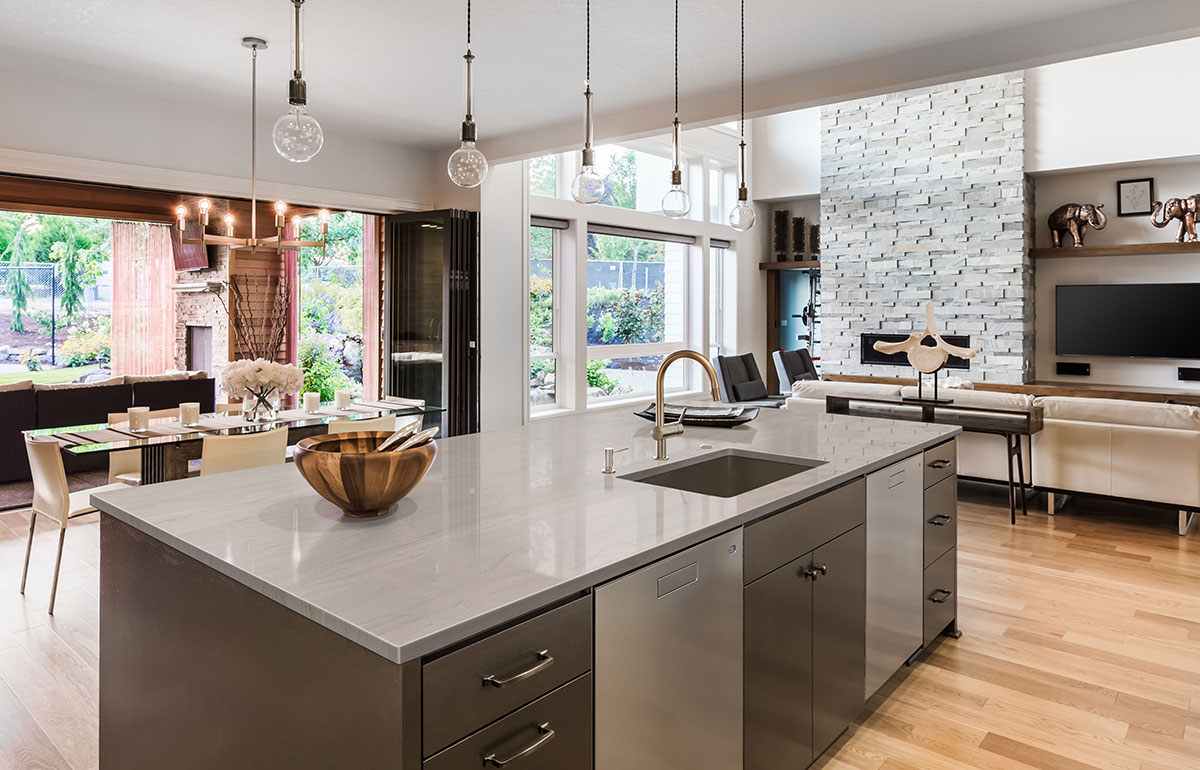
Royal Marble sources quartzite from reputable quarries known for consistent hardness and beauty, ensuring that each slab performs as impressively as it looks.
Pros of Quartzite
Here is why you should praise quartzite
| Features | Description |
| Exceptional Heat Resistance | Handles hot pots and pans without damage, making it ideal for active kitchens and cooking zones. |
| Natural Beauty | Each slab features unique veining and color variation, offering the organic character of authentic natural stone. |
| Superior Hardness | Harder than granite and highly resistant to scratches, chips, and heavy wear. |
| UV and Weather Resistant | Maintains color and surface quality even under sunlight, excellent for outdoor kitchens or pool areas. |
| Adds Property Value | Considered a premium material that enhances the resale appeal of luxury homes and high-end projects. |
Cons of Quartzite
Here is where quartzite falls back
| Cons of Quartzite | Description |
| Requires Sealing | Needs sealing at least once a year to prevent staining and moisture absorption. |
| Limited Color Availability | Naturally formed stone offers fewer color options compared to engineered quartz. |
| Higher Cost | Extraction and fabrication are more labor-intensive, leading to a higher price range per square foot. |
| Potential for Etching | Certain quartzite varieties can react to acidic substances like lemon juice or vinegar, leaving faint marks. |
Who Should Choose Quartz?
When you are trying to choose the best between Quartz vs Quartzite, choose a quartz counter. They are the best choice if you need a durable, synthetic, and strong material. It is the best choice for busy households, commercial projects ad busy households, and rental properties. They require durability and ease of cleaning.
If you have a busy kitchen where constant cooking, children’s spills, or frequent entertaining are normal, then choose quartz. The uniform look also works best in modern interiors with sleek cabinetry and minimal seams. Project managers appreciate quartz for its predictable lead times and easy installation, reducing site delays.
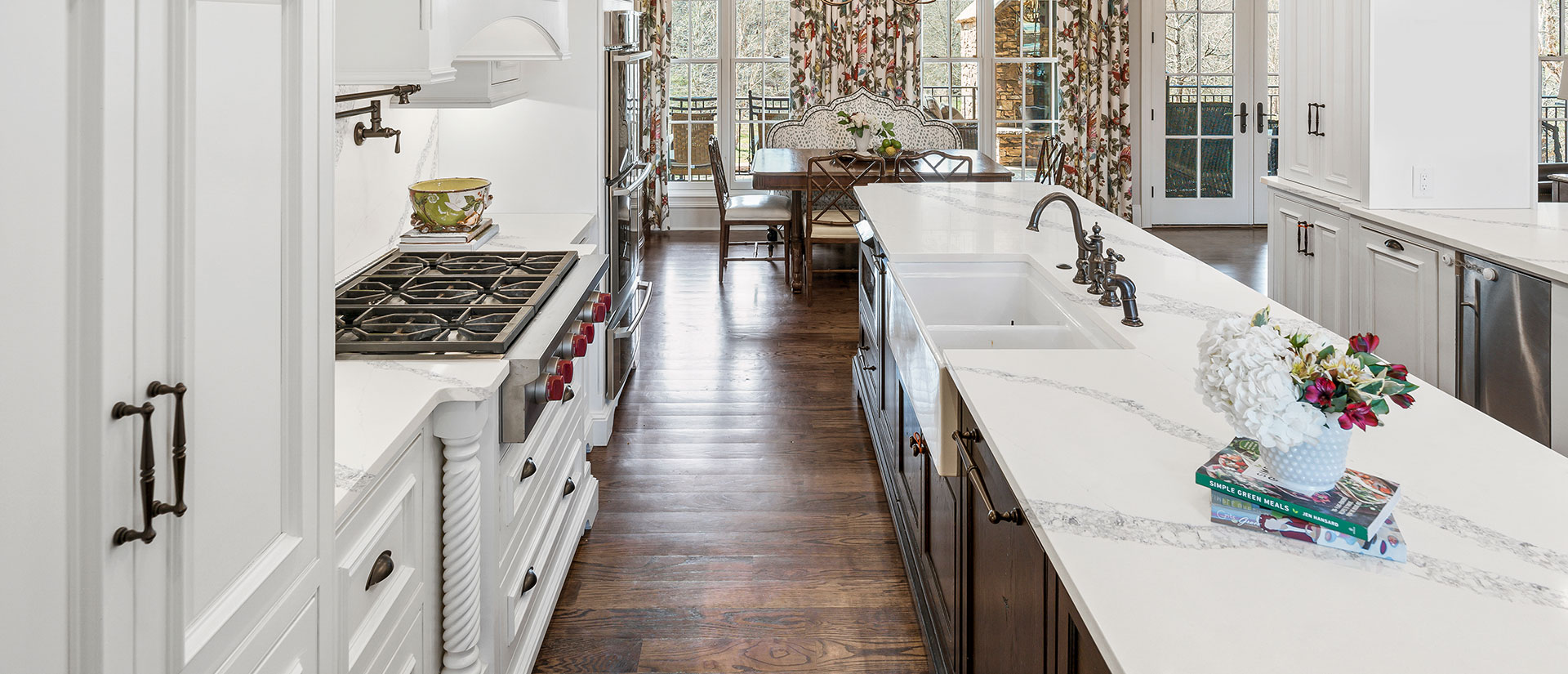
Who Should Choose Quartzite?
If your goal is to integrate natural aesthetic and longevity in your space, then go for a quartzite countertop. Choose quartzite to make your kitchen look and feel warm, luxurious, and elegant. Quartzite can add a unique personality to your home.
It’s also preferred in high-end residential and hospitality projects, where each countertop becomes a visual centerpiece. However, you may have to opt for resealing annually, but you can enjoy authenticity over uniformity.
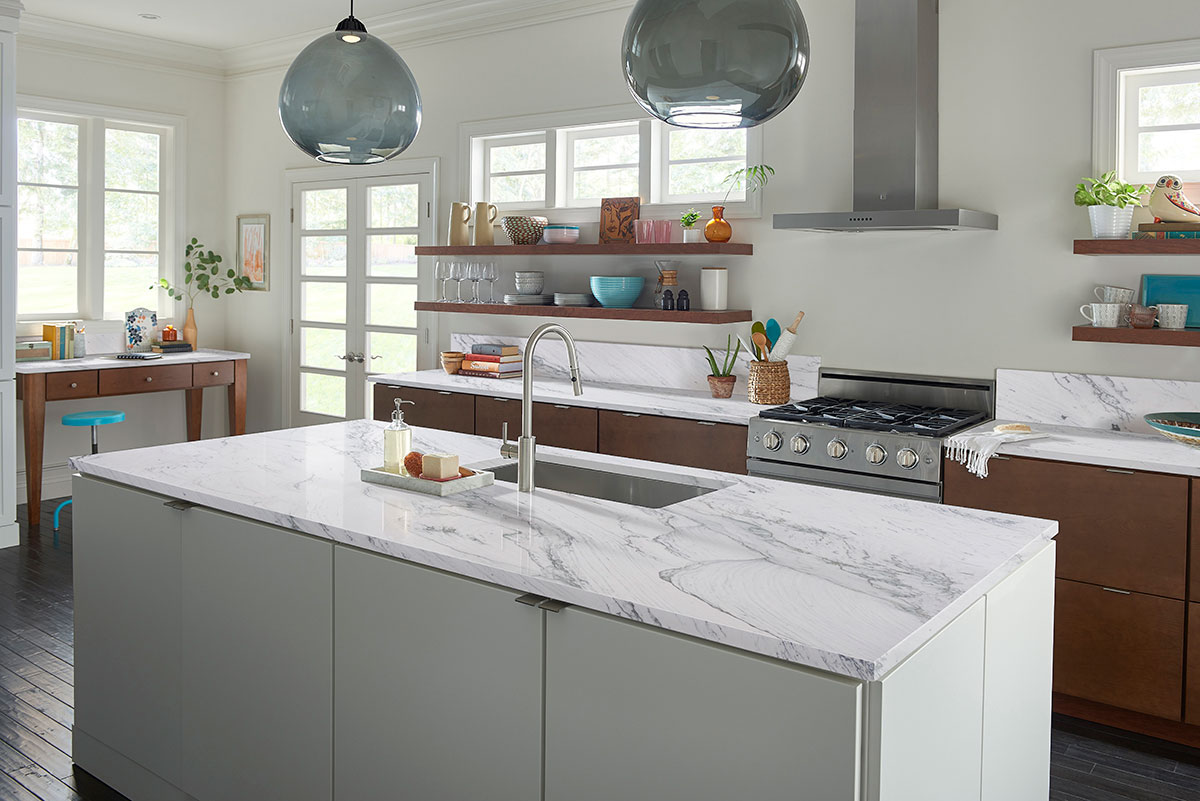
10+ Years Experience
Transform Your Kitchen with Premium Stone Countertops
Professional fabrication & installation of marble, granite, and quartz countertops in New Jersey.
- Expert stone selection & consultation
- Precision fabrication & seamless installation
- Premium marble, granite & quartz options
- Licensed, insured & warranty protected
Best Applications for Quartz and Quartzite Countertops
Quartz and quartzite countertops are popular for being the top choice for most commercial and residential kitchens and workplaces. Here are the best applications for both quartz and quartzite.
| Application | Quartz | Quartzite |
| Kitchen Countertops | Excellent—resists stains and scratches | Excellent—handles heat and heavy use |
| Bathroom Vanities | Ideal—low maintenance | Great—requires sealing |
| Outdoor Kitchens | Not recommended (UV sensitivity) | Perfect—sun and weather resistant |
| Commercial Bars & Cafes | Excellent for hygiene and consistency | Suitable for upscale venues |
| Fireplace Surrounds | Good with heat buffer | Excellent—high heat tolerance |
| Backsplashes | Perfect color coordination | Natural aesthetic for statement walls |
| Laundry Rooms | Great for durability | More than needed—can use elsewhere |
FAQs About Quartz vs Quartzite
Let’s answer your questions about Quartz vs Quartzite.
Is quartz or quartzite more durable for countertops?
Quartzite resists heat better and is harder, while quartz resists stains better. Both are durable, depending on your usage and requirements.
Does quartzite need to be sealed?
Yes. It needs sealing once or twice a year because quartzite is a natural stone with a porous surface that requires protection against stains and etching.
Which handles direct heat better between Quartz vs Quartzite?
Quartzite. However, quartz has resin binders that can discolor or crack from extreme heat. Use a trivet for hot cookware.
Which material looks more natural?
Quartzite is 100% natural and features organic veining. Quartz mimics natural stone but offers more color uniformity.
Which is more expensive: quartz or quartzite?
Quartzite typically costs more due to quarrying, rarity, and fabrication complexity. However, high-end quartz can reach similar price points.
Can quartzite be used outdoors?
Yes. Quartzite resists UV light and weathering efficiently, which makes it the best choice for outdoor kitchens and barbecue areas.
How long do quartz and quartzite countertops last?
Both can last decades with proper care. Quartz lasts 20–30 years, while quartzite often exceeds 40 years when properly sealed and maintained regularly.
Visit Our Showroom!
With expert guidance, you can compare textures, colors, and finishes to find the ideal material for your home.
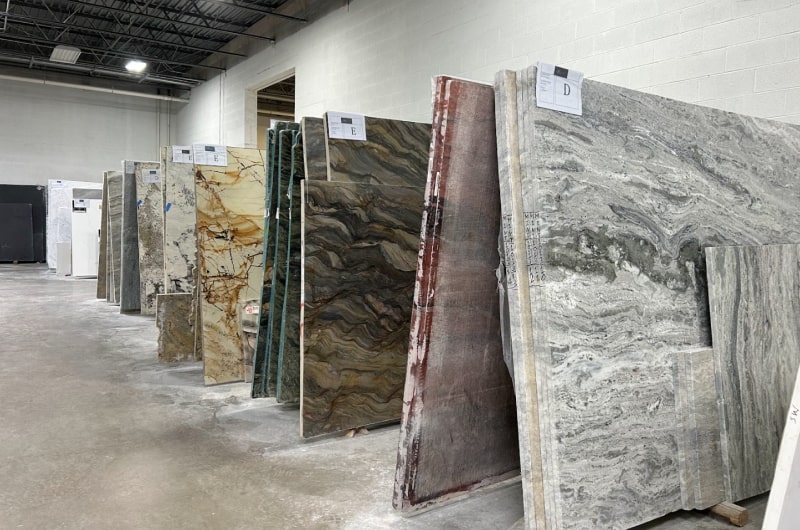
Bottom Line
When it comes to quartz vs quartzite, both are excellent choices for residential and commercial use with their distinctive features. However, kitchen countertops often have to face direct heat, which is why using quartzite for countertops is a great choice. Quartz, though equally durable, offers low maintenance and resistance against scratches and stains cannot withstand direct heat. To make an informed decision, Royal Marble recommends considering your requirements and usage for the countertop. This will help you decide the best between Quartz vs Quartzite. For more information, you can contact your stone supplier for a better idea.

